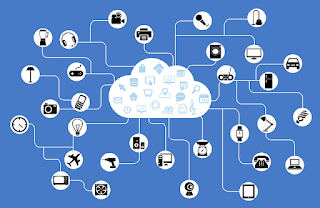Introduction
Volunteer State Community College held its annual Cybersecurity Awareness Month Seminar on October 21, 2020. Cybersecurity Awareness Month is held in October each year. It is meant to improve awareness about the importance of cybersecurity across the United States. Bringing awareness to cybersecurity issues helps guarantee that everyone across our Nation has the resources they need to be safe and secure online. This year’s theme was “If You Connect It, Protect It”.
Due to the COVID-19 concerns, the Seminar was held for the first time as a virtual event. Presenters spoke on several topics regarding this year’s theme. Topics ranged from Securing Devices at Home and Work, Internet of Things, to the Future of Connected Devices. The participants were from various segments of Cyber Defense expertise: Special Agent, Kevin Varpness (Law Enforcement (FBI)), Stephen Penn (Healthcare (AdventHealth)), Dr. Manaak Gupta (Higher Education (TTU)), and Kevin Blankenship (Chief Information Officer, Volunteer State Community College). Dr. Jerry Faulkner (President, Volunteer State Community College) delivered the welcome and shared some good information about connected devices and the various areas they are now found in society.
 |
Kevin Varpness, FBI
Special Agent Kevin Varpness spoke about how the internet is
being used in Child Trafficking. He
pointed out the fact that victims are groomed through social media applications. One of the applications he mentioned was Tick
Tock being a huge avenue for sex predators.
The predators use these means to integrate themselves into their
victim’s life. He also mentioned the
area of sexting and predators using the pictures to extort the victim into
doing what they want them to do.
Special Agent Kevin Varpness also discussed the importance of
proper security settings being placed on your Facebook and Instagram accounts. If a person security setting is not set
correctly a person can use what you place on these sites to learn your password
or use information on the site to ruin a person’s reputation. The way to mitigate these according to
Varpness is to be careful online when you are playing games or interacting with
people, do not give into certain communications, and do not engage in risky
behavior. He also discussed how Ransomware
has change from the hacker asking for a few hundreds of dollars to a more
targeted source for bigger payout (Big Game Hunting). They are going after corporations. He
mentioned that there are several strains of Ransomware and there is a new strain
coming out every year. The avenue that
the hackers are using is unsecured Remote Desktop protocol sessions, and email
(spearfishing) to obtain credentials.
Dr. Maanak Gupta, TTI
Dr. Manaak Gupta shared with us the Future of Connected Devices. He shared the statistics that there are
around 500,000 Cybersecurity job openings in the United States alone. He also discussed Ransomware and how
Cybersecurity Ventures is predicting that Ransomware will cost $6 trillion
annually by 2021. Ransomware is a global
problem. We cannot expect cyber-attacks
to go down.
Dr. Gupta also discussed Internet of Things (IoT) pointing out that everyone is using Cloud technology. IoT statistics show that from 2016 to 2025 it is expected that IoT will grow to 75.44 billion devices that will be communicating with each other and sharing data. With these devices connecting to one another it causes a possibility of exposure. The exposure can be a threat to privacy, data, and identity theft. Countermeasures should include proper authentication, encryption, access control, and security monitoring and analysis.
There are around 500,000 Cybersecurity job openings in the United States.
Stephen Penn, AdventHealth
Mr. Stephen Penn discussed the IoT in healthcare devices. In healthcare the enabled devices are used for remote monitoring. Through this type of monitoring of the patient’s health it helps to reduce hospital stays, prevent re-admissions, and reduce healthcare costs. IoT is transforming the healthcare industry. Doctor offices are now using devices that help speed up the process of seeing patients by having health information available to them without having to go through pages of information in a folder.
Using connective devices that people wear, to monitor their physical activities and body functions, with the devices at the hospital or doctor office makes it easier for a doctor to track the health of their patients. Hospitals are also using connected devices to know where personnel are at within the hospital for better patient care. Mr. Penn also discussed how the hospitals are using devices to scan for a fever as a person walks into the hospital instead of having someone else to scan people. Medical devices like home devices must be secured to prevent malicious activity.
Kevin Blankenship, VSCC
 |
| Kevin Blankenship |
Mr. Kevin Blankenship discussed the IoT at Volunteer State Community College (Volstate). At the college IoT devices are used in the heating and ventilation systems, door access controls, physical access controls, audio and video control systems. Another area of IoT is the technology being used for COVID-19 scanning and tracing. Mr. Blankenship stated that any device that is put on a network is an entry point into that network so you must consider what can happen if a device is connected to the network. Regarding home devices breaches can happen if a person does not change the default password on their devices. He emphasized that most of the breaches come from a combination of weak security, default passwords not being changed, and using a weak security version of a computer operating system. A person needs to be cognizant of who is on their network when they purchase things like ring doorbells or Alexa devices. It is important to get to know your home network and rotate your passwords. Do not use the same password for everything.
At VolState vulnerable devices are segmented on the network in order to keep the devices away from crucial data.
Contributing Authors
Dr. Chenchutta Jackson, Joshua Bond, Dr. Abbas Imam, and Freda Pinkerton


